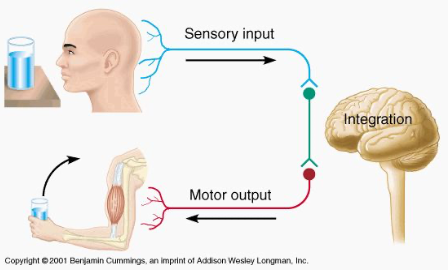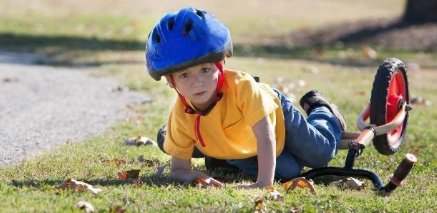Tying shoes, throwing a ball, getting dressed, printing and riding a bike are all activities we expect to see our kids accomplish as they grow. Unfortunately, for some kids these activities do not bring excitement; they feel like an insurmountable challenge. Certain kids cannot coordinate their bodies to accomplish what they know they want their body to do. To those watching, the child may appear ‘awkward’ or ‘uncoordinated’. To the child, they may feel frustrated and even embarrassed and may even start to avoid tasks that involve motor coordination. Why do some kids struggle with motor tasks?
First, let’s breakdown what a common childhood activity, riding a bike requires….
First the brain must recognize the sensory input coming in. For example, I am riding my bike on a bumpy surface. The eyes and internal senses must recognize this. Then one must use that information to choose a plan of action. For example, do I need to adjust my body positioning to brace for a bump? Once the brain recognizes how to respond to the stimulus, then the muscles need to recognize how to respond to the information the brain is sending. For example, which leg muscles do I need to use right now? Once the brain tells the correct muscles what to do, the muscles need to respond in a coordinated way. For example, to brace for a bump I need to stand briefly in my seat. I will need my right and left leg to extend at the same time to lift myself from the bike seat. Once successful at navigating the first bump on a bike, the brain will then need to respond to the next bump using the same sensory and motor processes…… and then a smooth patch….and then a slight incline. Each time the body must recognize and adjust.

When a child has difficulty making sense of information, organizing the information, sending the right messages, coordinating the correct movements, or combining all of the information, executing motor tasks appear challenging or awkward. All of the above things need to happen to control a movement. When things are not controlled, or pieces of the information pathway are not talking properly, motor tasks are HARD!

If this sounds like your child it is very possible the motor challenges and consequent daily activity struggles you have observed can be explained by Developmental Coordination Disorder.
“Developmental Coordination Disorder” (DCD) is an impairment in the development of motor coordination, significantly interfering with academic achievement, activities of daily living and leisure activities”2. In other words, it is like a motor based learning disability.
“DCD is thought to affect 5-6% of the school population; that is roughly one kid in every school classroom! In most cases, children with DCD have normal to above average intelligence levels”2.
Children, most commonly boys, with DCD, find common motor tasks such as printing, riding a bike or getting dressed very challenging. As children with the disorder become frustrated with motor tasks they may withdraw from activities, struggle with academic achievements and isolate from peers. Diagnosis of the disorder can assist the child, family and educators to understand why the child appears “clumsy” and what can be done to support the child’s motor development, self-esteem, school participation and quality of life3
If this sounds like your child, what’s the next step?
If you are curious about your child’s difficulties with activities you know their same-aged peers can do with ease, further exploration of the causes can be helpful in defining treatment. Diagnosis of DCD involves both an Occupational Therapist and a Pediatrician/Medical Doctor. Contact your pediatrician or call an occupational therapist to determine if further assessment would be valuable.
Is there treatment?
Yes! More and more research has suggested there are interventions that can be successful. Although there is not one specific intervention it is thought interventions that use a cognitive-orientation to occupational performance (CO-OP)4 approach are the most beneficial. An occupational therapist can assist your family with strategies that are right for your child.
If you are looking for more information about DCD please go to the following link:
https://canchild.ca/en/diagnoses/developmental-coordination-disorder/assessment-diagnosis
References:
1. n.d. Developmental Coordination Disorder. Retrieved from https://canchild.ca/en/diagnoses/developmental-coordination-disorder )
2. n.d. Developmental Coordination Disorder. Retrieved from https://canchild.ca/en/diagnoses/developmental-coordination-disorder )
3. Montgomery, I; Glegg, S; Boniface, G; Zwicker, J. (2018). Evidence for Practice. Management of Developmental Coordination Disorder. Retrieved from: http://www.childdevelopment.ca/Libraries/DCD/TherapistsDCDAdvocacyToolkit.sflb.ashx).
4. Polatajko HJ, Mandich AD, Miller LT, Macnab JJ. Cognitive orientation to daily occupational performance (CO-OP) part II the evidence. Physical & Occupational Therapy in Pediatrics. 2001 Jan 1;20(2-3):83-106